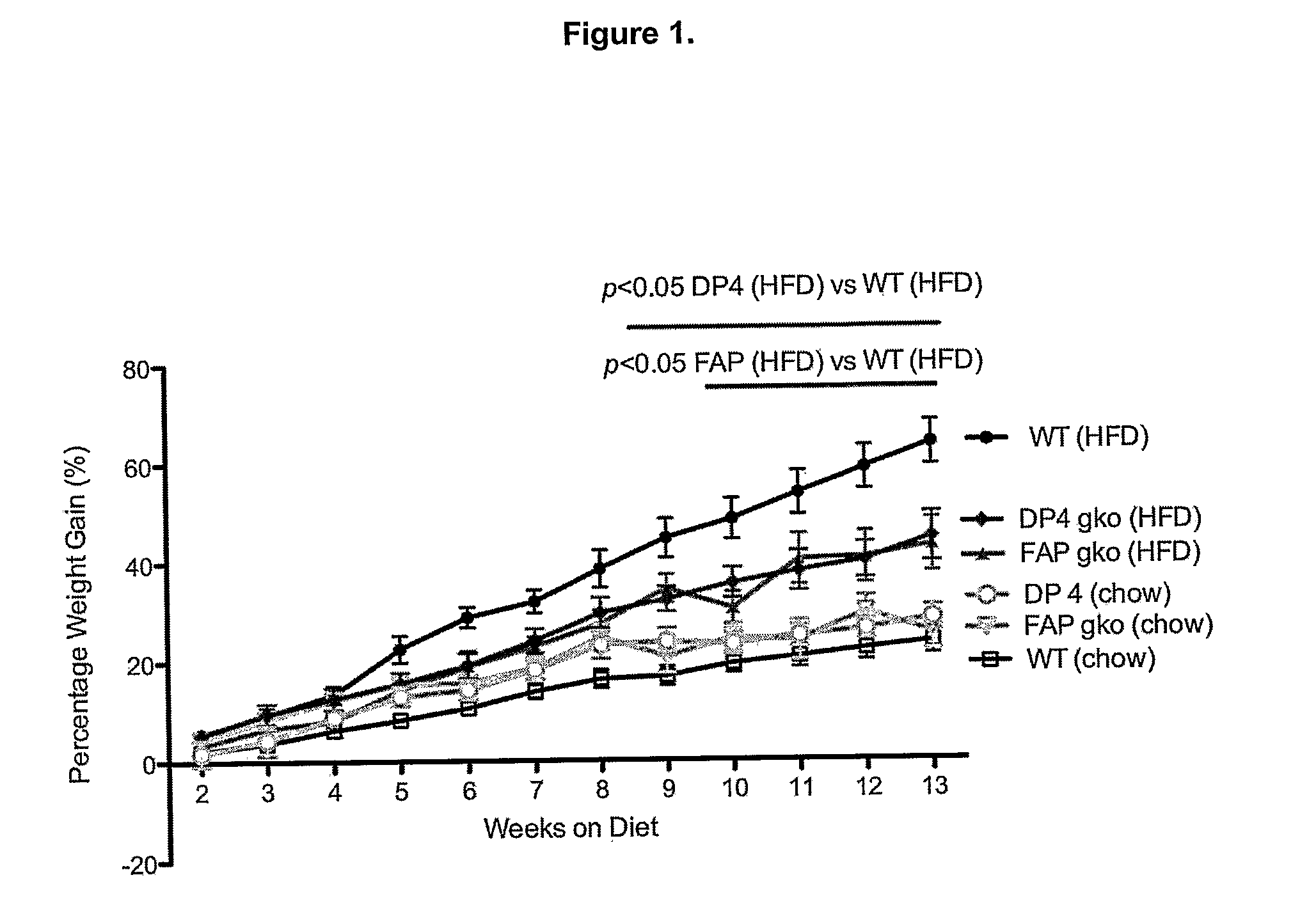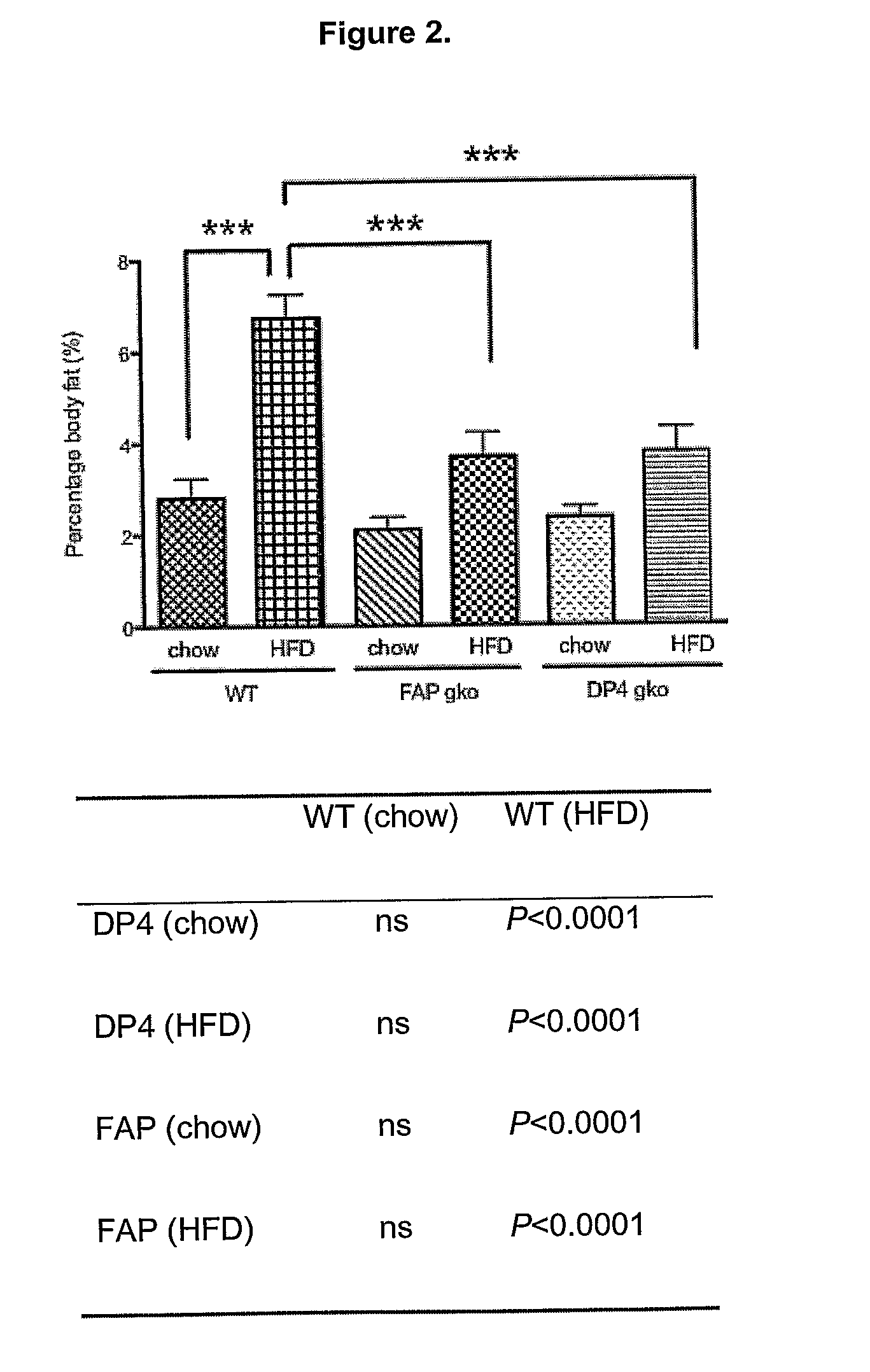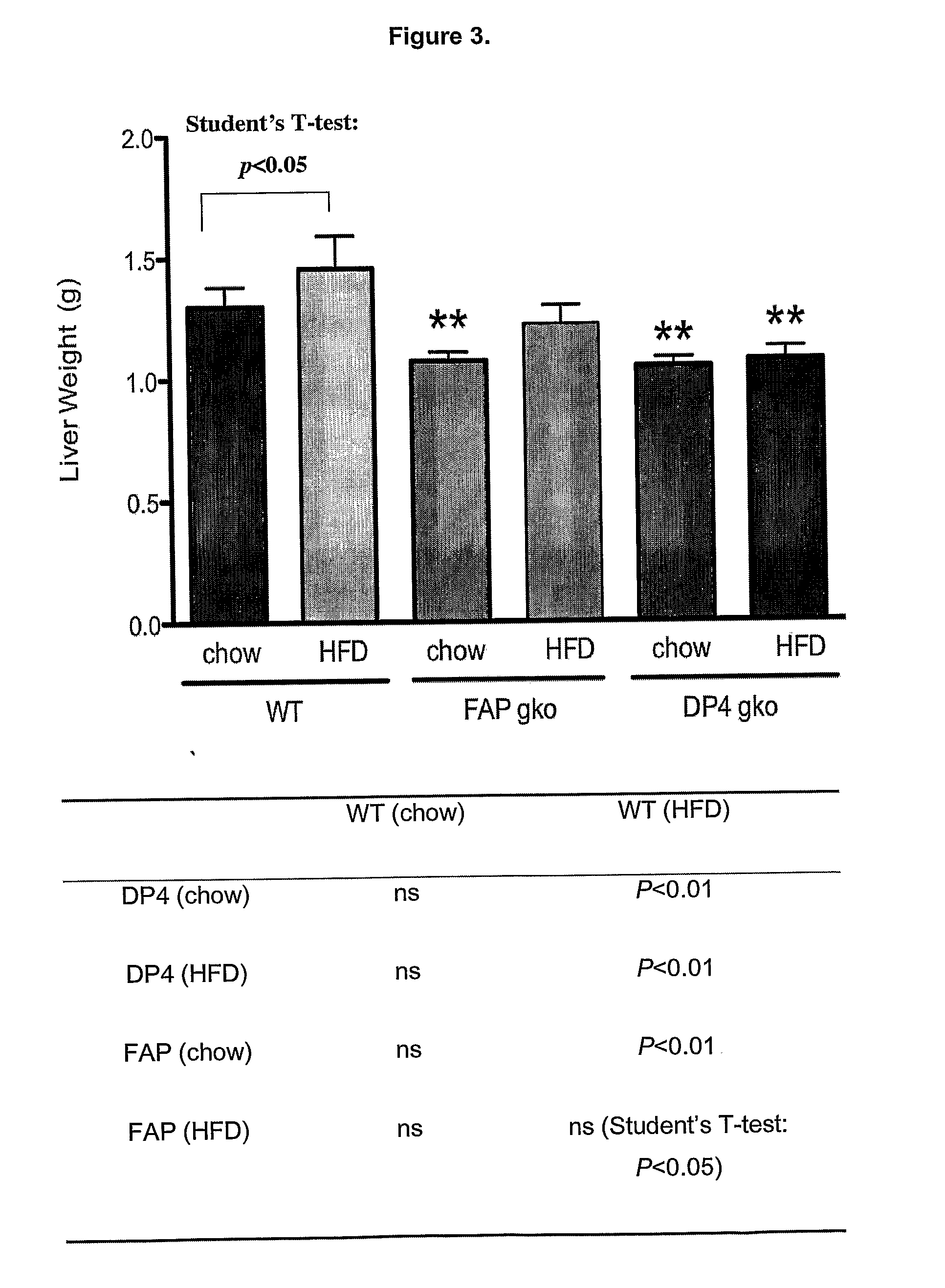Novel Metabolic Disease Therapy
- Summary
- Abstract
- Description
- Claims
- Application Information
AI Technical Summary
Benefits of technology
Problems solved by technology
Method used
Image
Examples
example 1
Aim
[0317]To determine whether gene knock out (gko) mice strains of DPIV and FAP are protected from a high-fat-diet induced (HFD) obesity and liver steatosis.
Methods
[0318]C57BL / 6 (WT; wildtype) (n=10), DPIV− / − (n=11,12) and FAP− / − (n=11) mice of 6-8 week old were obtained from the Animal Resources Centre (ARC, Perth, West Australia). The animals were cared for in accordance with protocols approved by Animal Ethics Committees of the University of Sydney. The mice were fed either the High Fat Diet (HFD), purchased from Specialty Feeds (23% fat plus 0.19% cholesterol, Cat. No. SF03-020, Perth) with water supplemented with 5% fructose (Sigma) or ad libitum chow (control diet). The mice were monitored for weight gain over the 12 weeks of diet. At 12 weeks, liver, spleen, fat and plasma were collected for further analyses. Standard liver function tests including plasma levels of Alanine Aminotransferase (ALT), Aspartate Aminotransferase (AST), Alkaline phosphatase (ALP), albumin, total pro...
example 2
Aim
[0331]To determine plasma glucose levels of FAP gko mice.
Methods
Mice
[0332]Female mice of C57BL / 6 (WT), and DPIV and FAP gko on C57BL / 6 genetic background were housed in Centenary Institute under University of Sydney animal ethics committee approvals.
Intraperitoneal Glucose Tolerance Test (IPGTT)
[0333]Mice aged 8-12 weeks (n=6) were fasted over night before receiving intraperitoneal administration of 4 g of D-glucose per kg body weight in saline (0.9% NaCl). Blood samples of conscious mice were collected from the tail vein at 0, 30, 60, 120 and 180 min. Blood glucose concentration was determined on Accucheck Performa (Roche Diagnostic) (9, 14).
Oral Glucose Tolerance Test (oGTT)
[0334]Mice aged 6-8 weeks (n=6) were fed ad libitum either chow or high fat diet (HFD) (23% fat plus 0.19% cholesterol, Cat No. SF03-020, Specialty Feeds, Perth, West Australia) with water supplemented with 5% fructose (Sigma, USA) for 14 weeks. The mice were then fasted for 5 hours before oral administratio...
example 3
Aim
[0343]To demonstrate FAP expression in normal (non-fibrotic) tissue.
Materials & Methods
[0344]Animals: Baboon (Papio hamadryas) tissue samples were obtained from the primate colony maintained by the Royal Prince Alfred Hospital under NHMRC and hospital regulations and approvals.
FAP Immunoblot Analysis method.
[0345]Cells and frozen tissue samples were lysed in Triton-based (20 mM Tris-HCl pH 7.6, 10 mM MgCl2, 2 mM EDTA, 10% glycerol, 1% Triton-114, protease inhibitor cocktail (Roche)). Gels used were 3-8% Tris-Acetate SDS-PAGE, 4-12% Bis-Tris SDS-PAGE (Invitrogen). PVDF blots were probed with anti-FAP monoclonal antibody [MAb] F19 (diluted 1:3) or 1E5 (1 ug / ml) as described (7, 13,15). Anti-GAPDH MAb MCA-1DC (EnCor Biotechnology Inc) stained GAPDH as the loading control. Recombinant soluble human FAP has been described (15).
Purified Human FAP.
[0346]Baculovirus—expressed soluble human FAP (residues 39-760) polyhistidine-tagged at the C terminus was purified by metal affinity chromat...
PUM
 Login to View More
Login to View More Abstract
Description
Claims
Application Information
 Login to View More
Login to View More - R&D
- Intellectual Property
- Life Sciences
- Materials
- Tech Scout
- Unparalleled Data Quality
- Higher Quality Content
- 60% Fewer Hallucinations
Browse by: Latest US Patents, China's latest patents, Technical Efficacy Thesaurus, Application Domain, Technology Topic, Popular Technical Reports.
© 2025 PatSnap. All rights reserved.Legal|Privacy policy|Modern Slavery Act Transparency Statement|Sitemap|About US| Contact US: help@patsnap.com



